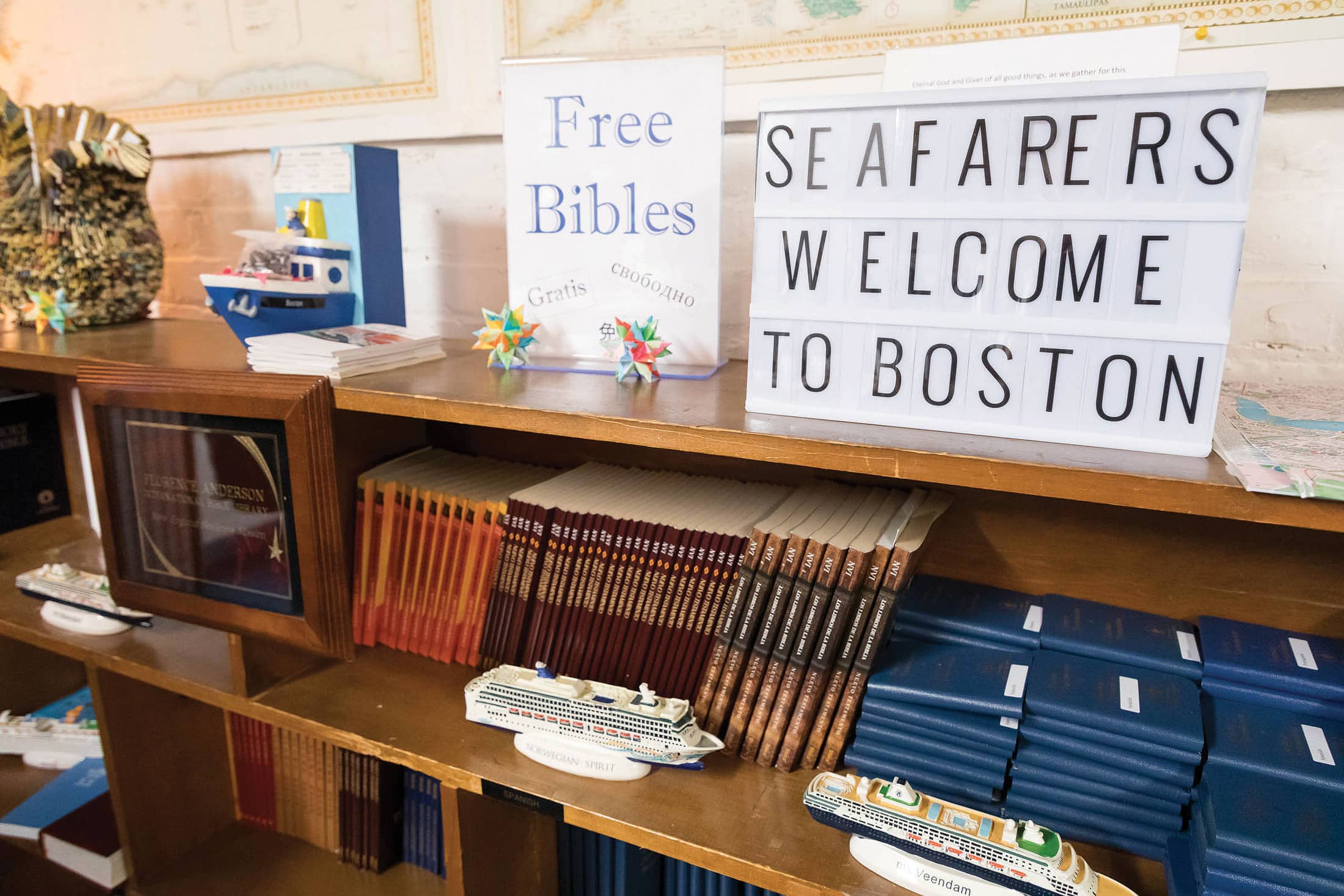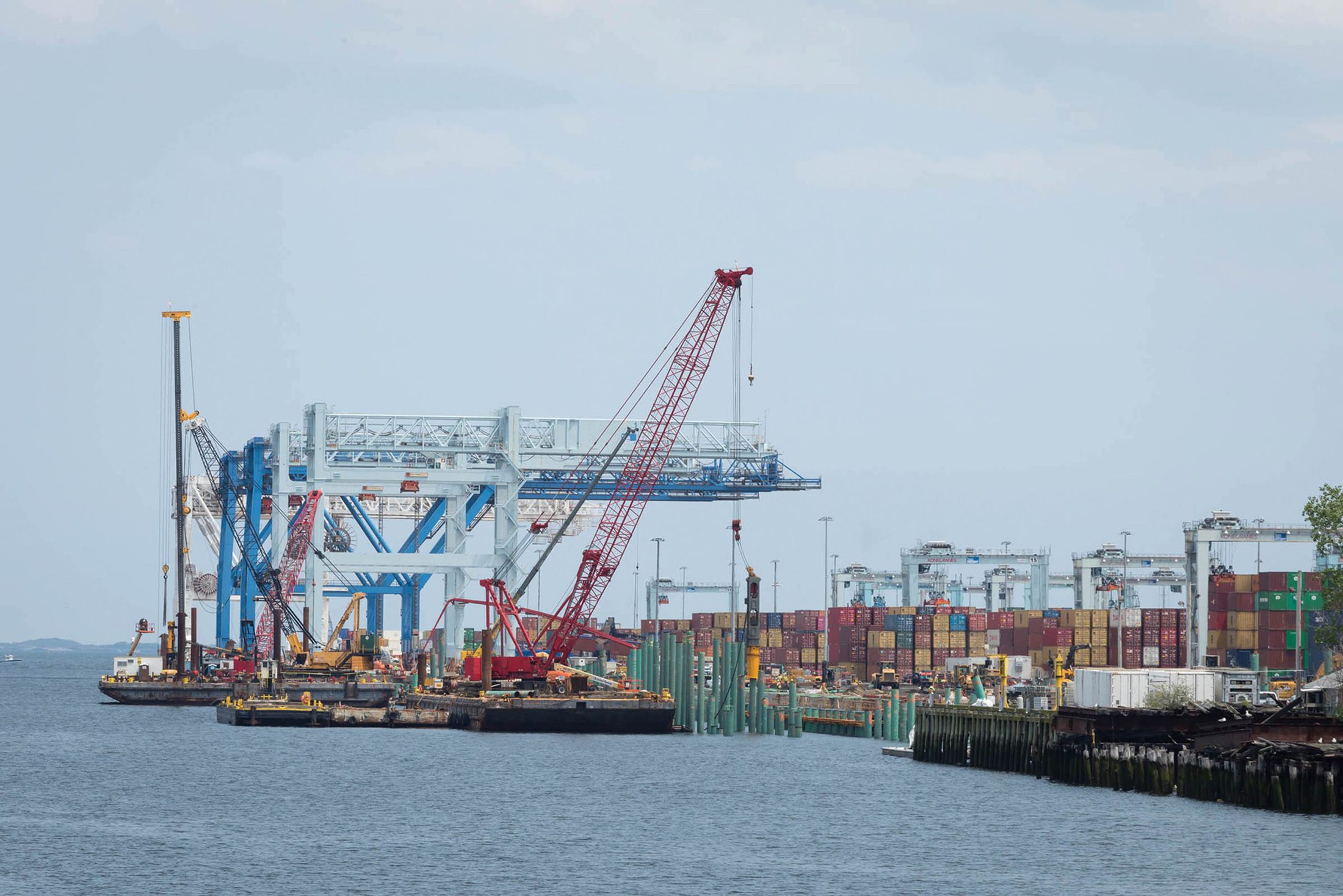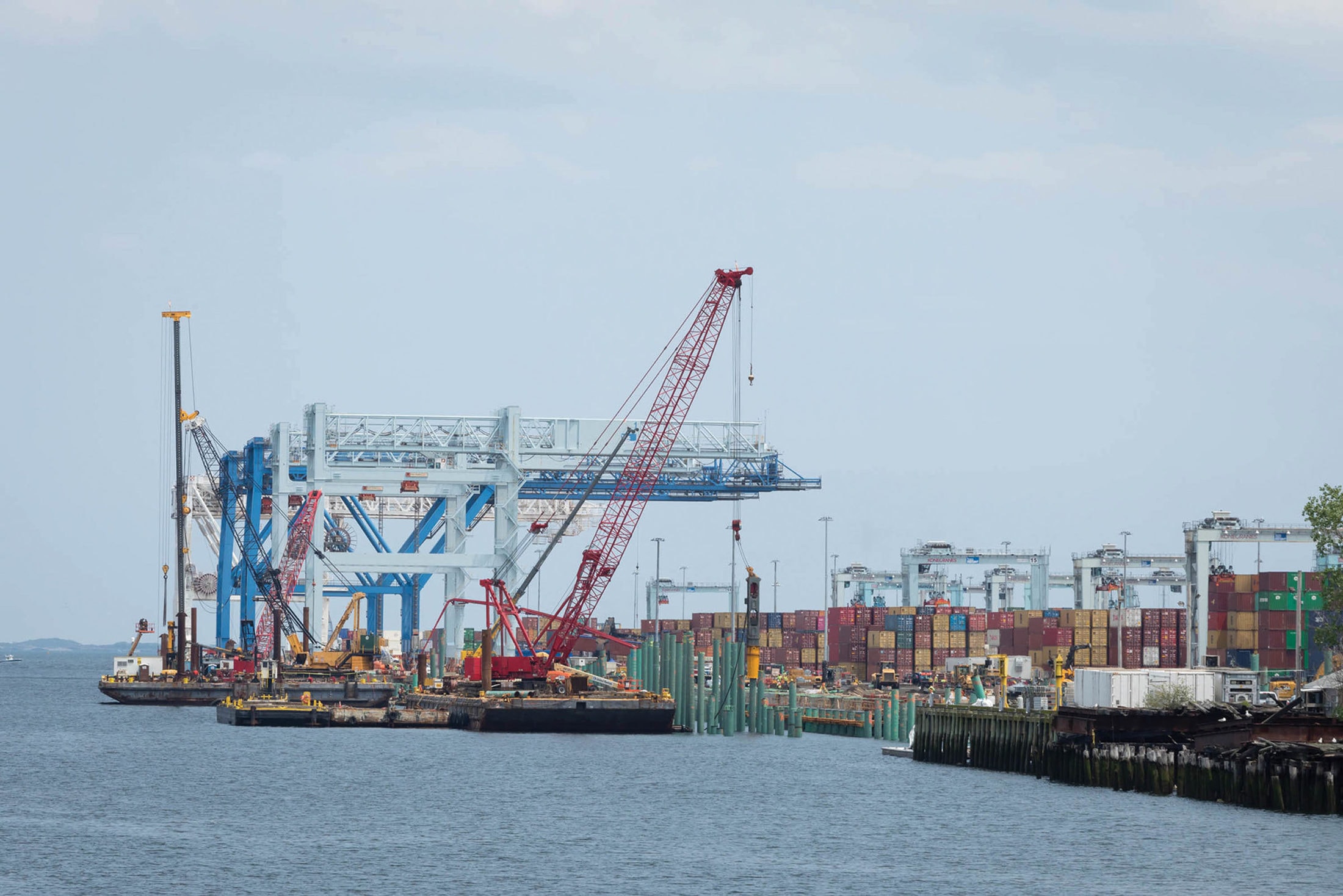
Harbored
Serving the world without leaving the wharf
by Cathy Norman Peterson | November 4, 2019
A row of buildings fronting the wharf at Boston Harbor hides the colossal cruise ship, as well as the water, though you can still smell the sea. The Norwegian Gem, one of the largest ships of the Norwegian Cruise Line, arrived in port early on a recent Friday morning after a week in the Caribbean, and the passengers and crew have not yet begun to disembark.
At the end of the long terminal, next to a bank of still-working pay phones, the cream-colored door to the New England Seafarers Mission (NESM) nearly blends into the wall. Above it, a giant arrow points passengers “TO SHIP.” A smaller sign welcomes seafarers to the mission, which is operated by the East Coast Conference of the ECC.
More than 100 cruise ships carrying more than 300,000 passengers come into port at the Black Falcon Cruise Terminal every year. According to Cruise Market Watch, the cruise ship industry took in $45 billion in revenue in 2018.
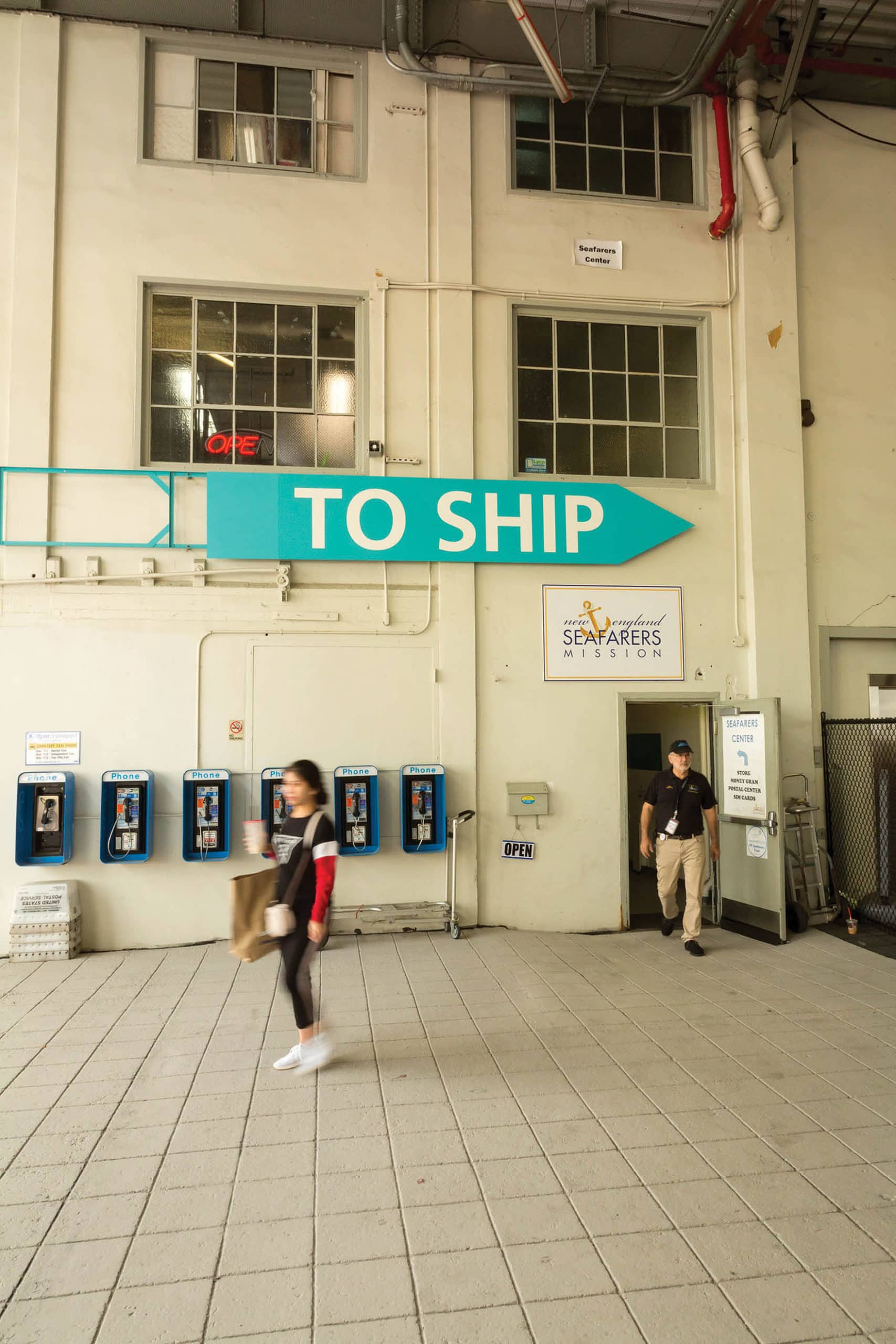
It is a lucrative business made possible by the often unseen and unrecognized work of the thousands of crew members on board. Cruise ships are often referred to as “floating hotels,” and they require an army of staff to clean, cook, maintain the ship, and serve the guests. Seafarers work long days, seven days a week—they may vacuum as many as 400 rooms a day or fold towels in the bowels of the ship for 14 hours straight. Sometimes the job requires four hours on, then two hours off, which can wreak havoc on a body’s biorhythms.
Those seafarers are the reason the oldest continuous ministry in the Covenant continues to operate. Begun in 1880, five years before the denomination was founded, the New England Seafarers Mission serves ship workers—officers, guest services staff, cooks, custodians. From as many as 167 countries, 25,000 staffers of ships come through the mission each year.
NESM began with a layperson, a former sailor, who worked the waterfront, visiting Scandinavian crews from ships that called into Boston. Today, Stephen Cushing serves as its chaplain and executive director, overseeing the primary site on the Black Falcon Cruise Terminal in Boston Harbor and a smaller branch in Providence, Rhode Island.
Once the passengers are off the Gem, the crew can go ashore, and Scott Hamby, chief finance officer on the ship, stops by the mission. Hamby began his career at sea by responding to a job ad, even though he’d grown up in a landlocked part of Texas. When the hiring manager asked about his maritime experience, he replied, “I’ve never even seen the ocean.” She laughed so hard she hired him on the spot. He started working two weeks later.
The biggest challenges in his work aren’t the long stretches away from home, Hamby says. “I’m single, and I have family nearby who take care of my house,” he says. The challenge is staying grounded while “living in a bubble,” referring to the surreal nature of life on board. “Like every job, there are good days and bad days. But in this job the bad days take place in exotic locales,” he says.
Begun in 1880, five years before the denomination
was founded, the New England Seafarers Mission serves
ship workers—officers, guest services staff, cooks, custodians.
From as many as 167 countries, 25,000 staffers of ships
come through the mission each year.
Most of the crew who share Hamby’s bubble, however, have few opportunities to escape the demands of their jobs.
Cruise lines get around labor laws (as well as tax laws and safety regulations) by registering their ships and businesses in countries with looser restrictions, such as the Bahamas or Bermuda. The common practice of “flying a flag of convenience” means cruise lines don’t have to abide by U.S. laws, even if they operate out of U.S. ports and carry U.S. passengers, according to a recent report in Business Insider. The Norwegian Cruise Line, for instance, is headquartered in Miami, but the business is registered in the Bahamas, so its ships sail under a Bahamian flag. The practice saves cruise lines billions of dollars in taxes and wages.
Cushing, who wears a black NESM baseball cap and carries a walkie-talkie for communicating with volunteers, has been at the mission for 21 years. Ordained in the ECC, he started as the mission’s interim director as soon as he finished seminary. A year later he was hired as its permanent director.

The hulking, 965-foot-long Gem makes weekly runs between Boston and the Bahamas during cruise season. On Fridays, it arrives in Boston Harbor around 6:30 a.m., and its passengers disembark within three hours. Maritime law requires “port manning,” which means one-quarter of the 1,070-member crew must stay on board in case of emergency. Homeland Security restrictions may prevent some seafarers from stepping foot on U.S. soil, depending on their nationality. The rest can go into port. The ship will leave at 4 p.m. with a fresh load of passengers, so the crew must be back on board by 2 p.m. That means at most they may have about four and a half hours of free time. Some catch a few hours of sleep. Others take the opportunity to go into Boston. And some stop by the mission.
“The upper ranking officers usually don’t leave the ship,” Cushing says. “So, we usually see the hotel staff.”
The mission offers three services to the seafarer, each located on a separate floor. The ground floor on Deck 1 houses the general store. The mail room is up another flight on Deck 2. The money transfer room and international Bible library is on Deck 3. “I definitely get my steps in,” Cushing jokes.
Cushing’s wife, Sharon, is the mission’s buyer, stocking the shelves of the store with everything from toiletries to Red Sox t-shirts, to Korean shrimp crackers. “I try to get what they want, and if it doesn’t earn its keep, it’s gone pretty quickly,” she says.
She does much of her purchasing at local Asian markets—a large percentage of seafarers are from the Philippines. Others come from India, St. Lucia, Jamaica, Eastern Europe. The most popular item is an instant coffee package that includes sugar and cream.
It may seem like a small thing—selling staplers
and magnets—but Cushing explains its importance.
“This is a hospitality ministry. They don’t
have much time on shore, so we try
to accommodate their needs as much as possible.”
In contrast to the all-inclusive buffets for passengers, the food options for the crew are limited. “They’ll set out a buffet, and it’s pretty bland—white rice, French fries, some American food they don’t even really like,” Sharon says. Often, workers don’t get their lunch break until 3 p.m. and by then, the buffet is picked over.
Staff tend to share a room on their ships with three other people, which means they are shopping for small packets of re-sealable items.
People come in still wearing their name tags from the ship. One man is talking on his cell phone in Polish while he waits in line to make his purchases. Another shopper is looking for a stapler. He buys three-in-one coffee packets, rubbing alcohol, two small staplers, Vaseline, ginger chews, and earbuds. He’s been at sea for two months, but he’s finally going home. “I’m so happy I have something to purchase to bring back with me,” he says.
It may seem like a small thing—selling staplers and magnets—but Cushing explains its importance. “This is a hospitality ministry. They don’t have much time on shore, so we try to accommodate their needs as much as possible.”
He adds, “The work we do here is not difficult, but it makes a huge difference in the lives of people from the other side of the world and from right next-door.”
While the mission has been around for more than a century, it is constantly adapting to the needs of seafarers. A few years ago, a crew member from Jamaica asked Cushing if he could use the mission’s address to receive an Amazon package. Few Amazon products are available for international shipping, and when they are, the cost is exorbitant. So the seafarer needed a U.S. address to receive his orders and hold them until he got to port. Cushing agreed, and word spread quickly that NESM provided the service. Now that aspect of the ministry is booming.
“I’m amazed at the stories I hear,” Cushing says. “They tell me, ‘This thing I ordered for $100 was shipped here, and then you charged me $3-5 to hold it. If I tried to buy this in my country, it would cost $300-400, just retail.’”
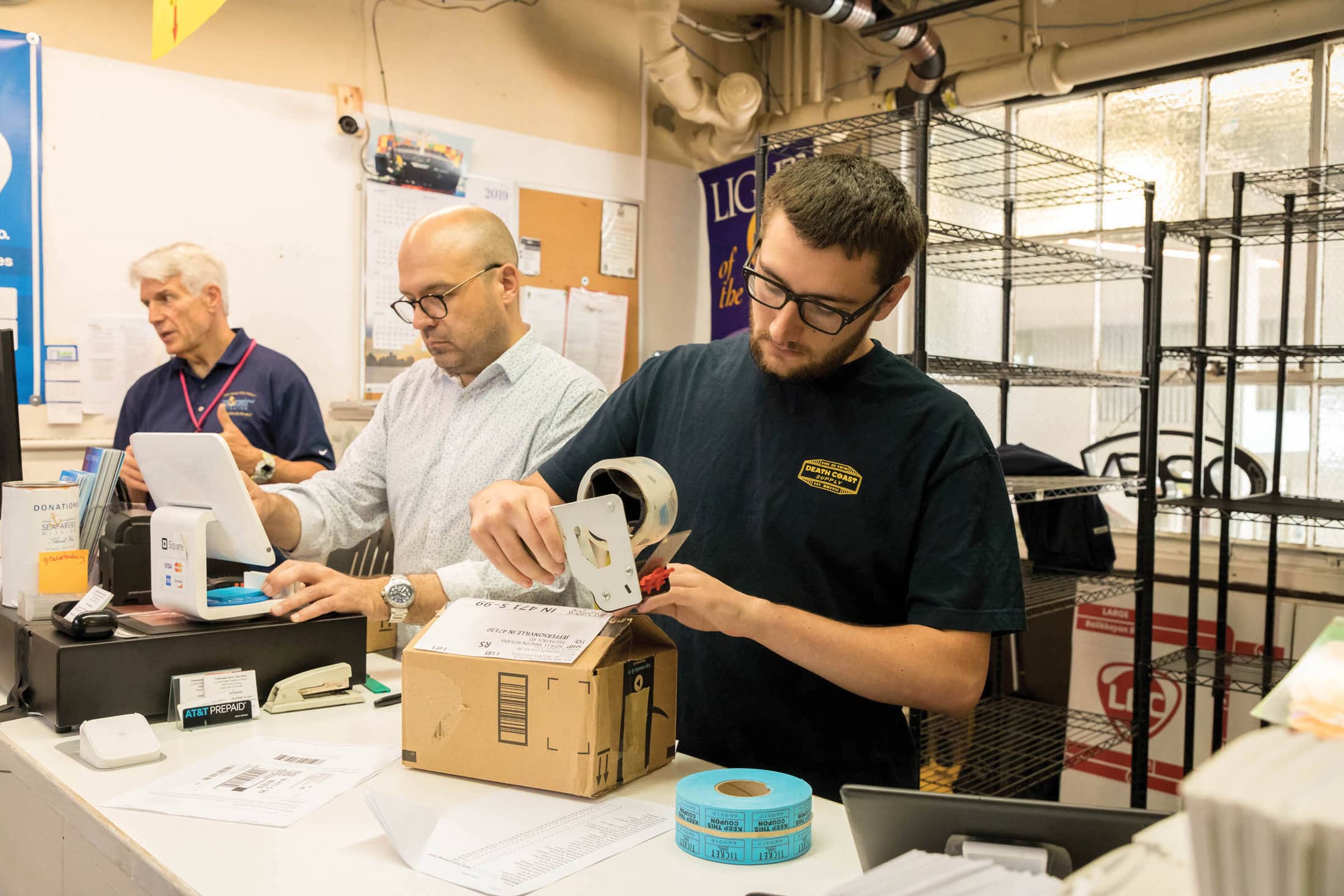
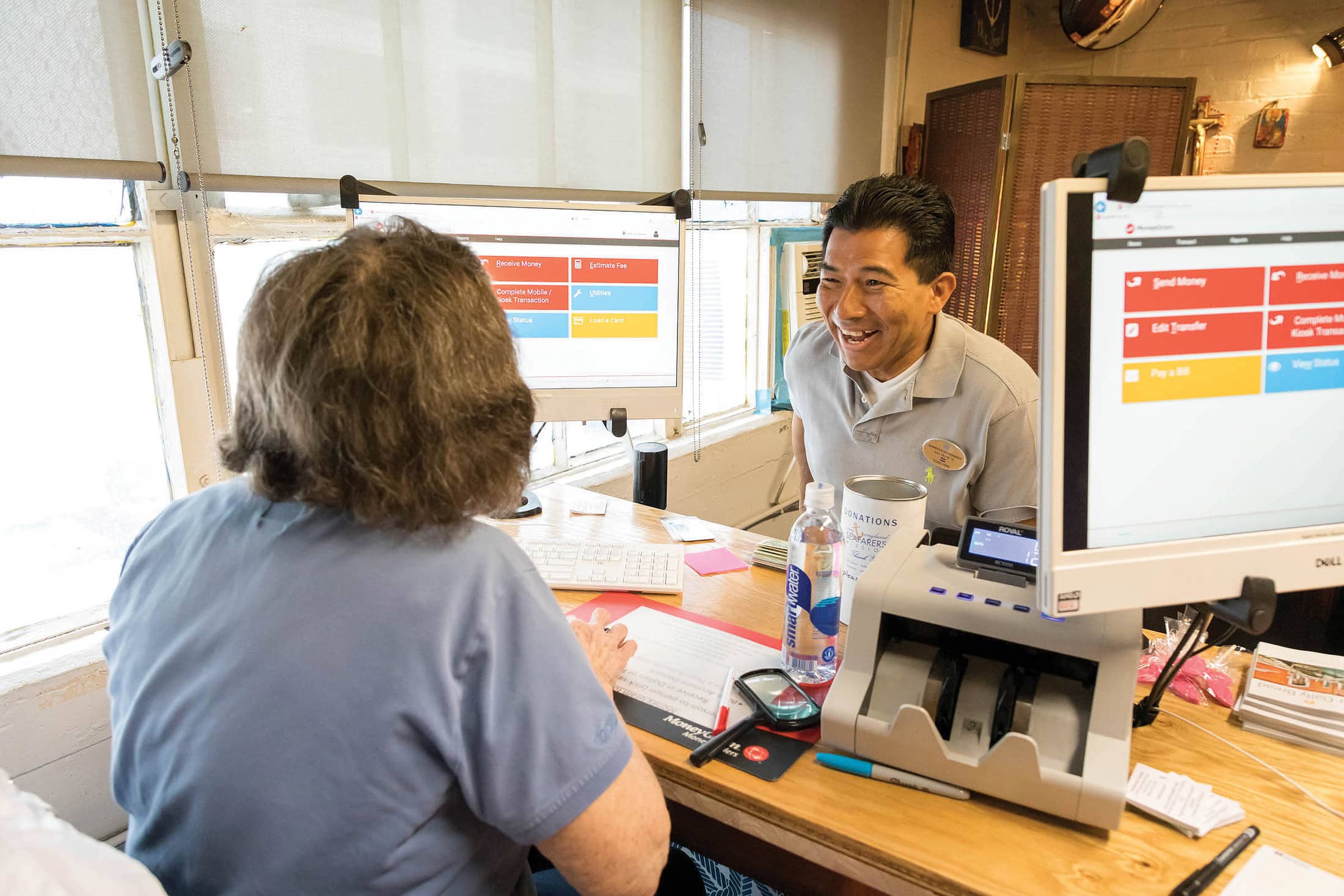
One woman from St. Lucia ordered a toilet and bathroom cupboards to bring back for her neighbor.
The Cushings could not run the ministry alone. From youth groups to retired people, volunteers help distribute packages, send wire transfers, or run the cash register.
Jack Ward, who attends Community Covenant Church in Peabody, Massachusetts, retired a couple years ago, and he wanted to be intentional about volunteering. So he comes to the mission every Friday. In the Boston office, the only paid staff are the Cushings and two part-time staff—an office administrator and a communications assistant.
In the package room, Ward sees familiar faces over time. “They get their treats or whatever that might be—maybe earphones or headphones. They’re pretty excited about that. It makes their life on the ship a little bit more pleasant.”
One challenge, says Cushing, is to get the customers in and out quickly out of respect for their compressed time frames, while also trying to make a human connection. “Life at sea means fractured relationships, separation from home, working for taskmasters,” he says. “It’s a lot of psychological pressure.”
That pressure produces what Cushing calls “the Disney face.”
“Their supervisors are pushing them, pushing them, because somebody is pushing the supervisors for the numbers,” he says. “You’ve got passengers who assume, ‘You are my personal concierge,’ saying, ‘Get me this, get me that.’ And through it all they have to keep a positive attitude. You cannot get in a customer’s face or a supervisor’s face, or you’ll be fired. The psychological pressure of that is brutal. When they come off the ship, you can see it.”
Sometimes when Cushing visits a ship for a luncheon or a meeting, he recognizes workers he knows. But they don’t seem to see him at first. “They just say, ‘Yes, sir. Hi, sir. How are you, sir?’ It’s a different vocabulary. When I say, ‘Hey, I’m Steve. I’m the chaplain at the Seafarers Mission,’ I can see the change. They become human again. It’s a distinctive difference.”
In the money transfer room, Cushing and volunteers help seafarers send funds home. This is why so many choose this work. The job means support for families or for a child’s education.
“You don’t do this job for you,” one seafarer said. “You do it for your family.”
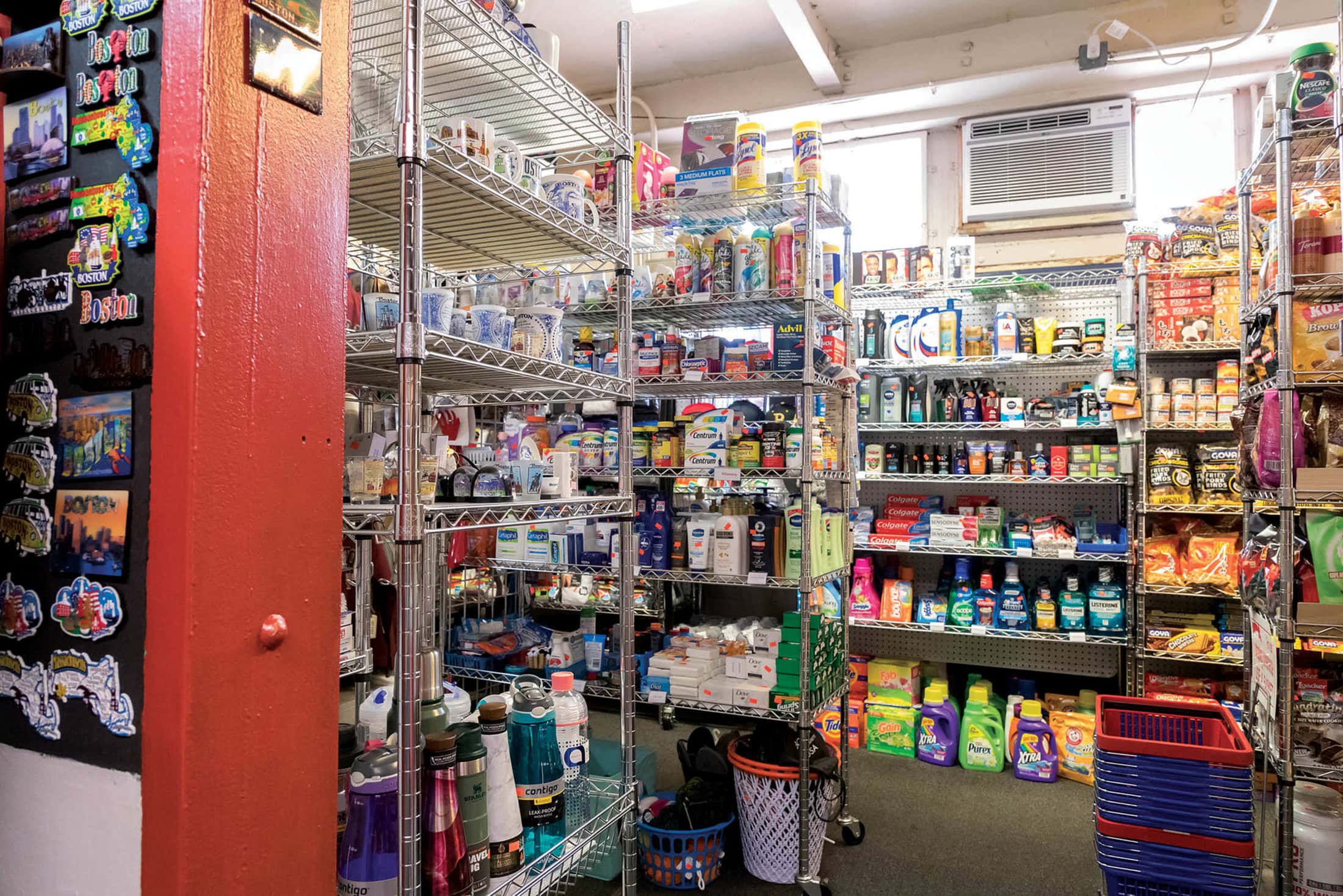
When possible, Cushing tries to connect personally. “Here is where the humanity shows up,” he says. As he keys their information into the computer, he asks simple questions: Who are we sending funds to today? How long since you’ve been home? The men and women engage him in conversation because they trust him. But they don’t want to risk repercussions from their supervisors for talking about their work, so they don’t reveal their last names.
Sherman, a young man with an engaging smile, is sending $460 to his wife, Catherine, in the Philippines. He tells Cushing he has been working on ships since 2010, when his first child was three years old. Now his children are 12 and four. Cushing asks him to flatten the bills so they can be fed into the money-counting machine. When the machine jams, Cushing sprays air-cleaner into it to get it going again.
A man named Justin is next, holding a wad of folded bills. “It’s a lot of ones,” he apologizes. He is sending $800 home to his wife and six-year-old daughter. The following month will mark his eighth anniversary on the Gem. When Cushing asks when he will be home next, he exclaims, “Next Friday!” In eight years, he has never been home for Christmas.
Letitia sends money to her father in Brazil who lives with his mother.
Hartley from Guyana is wearing a stocking cap, white t-shirt, and camo padded jacket. He sends $200 to France, and he’s getting married in February. He talks about how much he loves Guyana. “It’s the patriot in me,” he says. Then he notices the clock on the wall. “Is that correct? I need to get back.”
But first, he pauses to address Cushing. “I’m very thankful for the mission,” he says. “It means a lot to us to know you are here for us.”
And then he rushes out to the ship.
